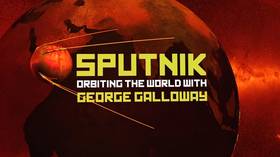The coronavirus has ravaged countries across the European Union – some more than others. But the pandemic has also revealed something else: the pre-existing weaknesses and built-in inequalities that are now coming to the fore. Between the industrial core of the northern nations of Germany, France and the Netherlands, and the peripheral countries of the former Soviet Union and the Mediterranean, the disparities are evident. So, what next for the EU and what next for the euro? Will they keep calm and press on with the project, or will it collapse under the weight of Brexit and the potential departure of another key member state, Italy? We spoke to Dr Russell Foster, lecturer in British and European politics at King’s College London, to find out.
With the coronavirus pandemic seemingly creating conditions akin to those of the 1920s and 30s, are we entering a period analogous with an era that fueled fascism? And is the specter of fascism still haunting us, 75 years after the hanging of Mussolini? With global “strong men” figures such as Trump and Orban purporting to embody the will of the people, governance by decree rather than democracy seems to be setting the tone for the future. So, we invited Samir Gandesha, Associate Professor of Humanities at Simon Fraser University, in Vancouver, to give his views on a post-pandemic future.
